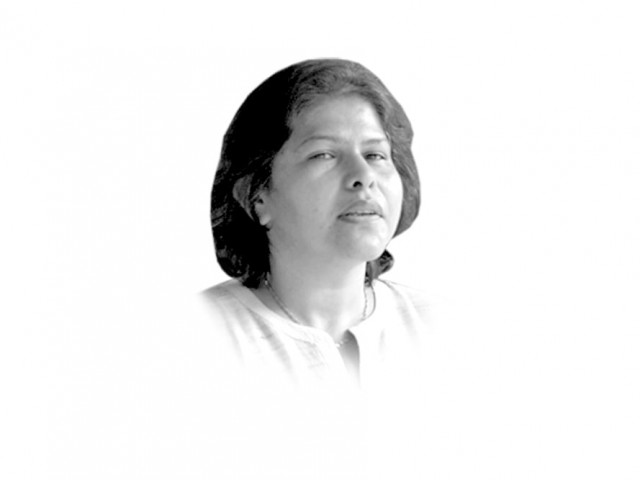What about those who beg to differ?
Pakistan is at a juncture with a poorly done political vision versus a national security vision of the country.

All these things sound so easy until you begin trying to do at least some of them, or even laying your faith in some of these options. The response happens to be in the form of a bullet. Recently, two bullets did their job of silencing two voices — journalist Saleem Shahzad and Professor Saba Dashtyari. The former made the mistake of speaking the truth about the changing character of security forces and the spread of jihadism in the armed forces. The latter was probably shot because those in power did not like his views.
These bullets have a message written on them: Do not try to deviate from the dominant version of the security establishment, else it will be your end. Each bullet does the job of killing the immediate victim and silencing others whom those with real power think have “lost their objectivity and are becoming irrational”. These were the words of displeasure recently conveyed by the ISPR. Although I differed with their right to judge me, I still wonder, where does this put the personal security of those that beg to differ? Not surprisingly, after Shahzad’s assassination people were calling each other to make sure that friends were alive and safe.
I want to ask those who propose writing up a new national security policy whether they can ever attain the task without the necessary change in paradigm — a shift towards an environment where people can differ without violent repercussions. The current situation reminds one of the Italian mafia which basically guns down people without listening to reason — vested interest is primary in judging people’s fate. Life is inexpensive, especially if it gets in the way of those in power. So how can one begin to even think of any change? Under the circumstances, the simplest things become the most difficult. Asking for the state to appreciate and respect ethnic identity becomes a sin which can earn you a death certificate and nothing else.
We in Pakistan are at a juncture where there is a contest between a poorly done political vision of Pakistan and a national security vision of the country. The former is weak, as it is the product of the much maligned political forces who think that the only way to survive is to lay low. Although the political forces led by the present government are trying to make some right moves — such as the passing of the 18th Amendment — that focus on empowerment of the federating units, they have totally failed to empower the process. The first test of such empowerment was the devolution of the Higher Education Commission, which has fallen flat on the face because the centrist-pro-establishment forces were too powerful.
The other vision is centrist and top-down, and is based on the idea of unifying societies bureaucratically and through the power of violence. Surely there is a side option as well, which is to conform to the national security apparatus through becoming part of its plans. This vision also hopes to keep the state together but through liquidating alternative identities and making people subscribe to a singly identity. The making of cadet colleges and cantonments is one part of this scheme. The other, perhaps, is to create a unifying and single version of religious ideology. These ideologies do a wonderful job of forcing people to a single plan through the means of force. They will obliterate all opposition. The singular identity plan of the security establishment and the religious ideologue has a common flavour. At times, it becomes difficult to tell the difference.
Thus, it is hard to tell how it would be possible to negotiate the differences and bring change. Those in charge of making the national security policy do not seem interested in talk. There were times one hoped to initiate a civil-military dialogue with the intention of building bridges. Instead, what the society got were national security workshops that gave a top-down statist-national-security version. What we need right now is greater sanity. But more than that we need the capacity to draw rules of engagement in which we can talk sensibly without people losing lives.
Published in The Express Tribune, June 5th, 2011.















COMMENTS
Comments are moderated and generally will be posted if they are on-topic and not abusive.
For more information, please see our Comments FAQ